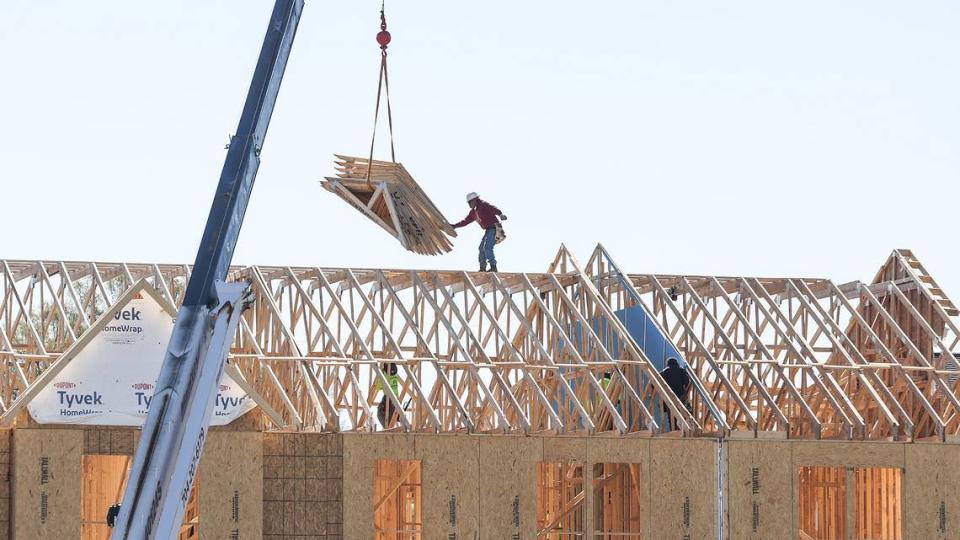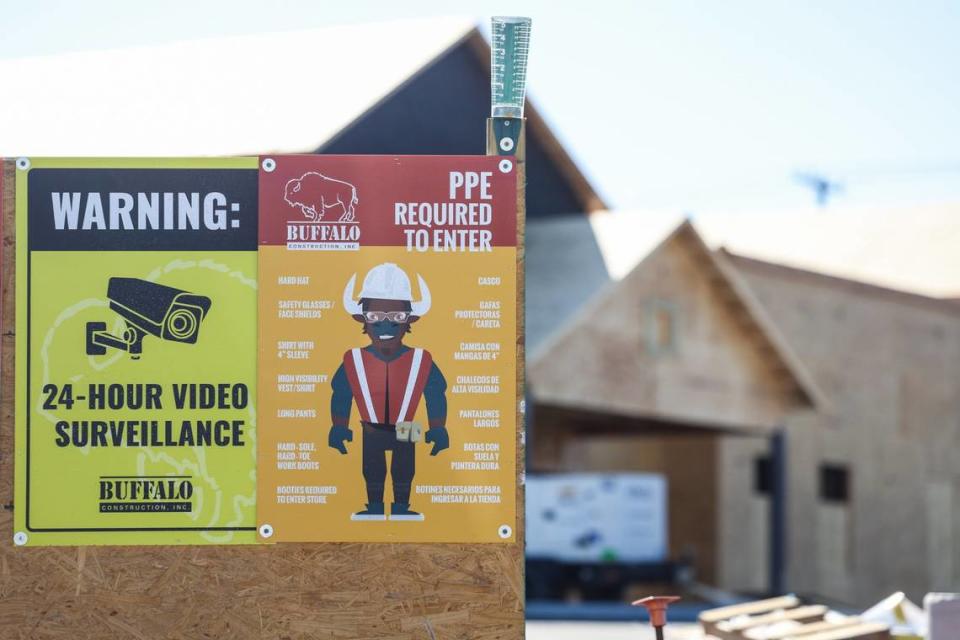How can NC protect worker lives? Labor commissioner candidates offer different answers.
Despite their wide political differences, the two candidates competing to run North Carolina’s labor department agree on this:
Too many construction workers are dying on the job.
Once every 10 days, on average, a construction worker in North Carolina dies at work, a recent Charlotte Observer investigation found. Construction workers here die on the job at a significantly higher rate than those nationally, the reporting revealed, and many of those deaths are preventable.
Democrat Braxton Winston and Republican Luke Farley say they’d both work to change that if elected labor commissioner.
“When a construction worker is being killed on the job site every 10 days, that’s a need for urgent action,” said Winston, 41, a former three-term Charlotte City Council member who is a stagehand and grip by trade.
“My first and foremost point is that you need an adequately staffed department,” he added.
Farley, 39, is a Wake County lawyer who regularly represents construction companies that have been cited by the state labor department for workplace safety citations. He’s been on job sites where workers have been killed, he said.
“I’ve seen legs amputated, arms crushed,” said Farley, who has served on public boards but has never held an elected political position. “So I know how high the stakes are… When you see these things up close, they affect you deeply. I don’t think the fact that I have been involved in this industry will prevent me from doing the job that needs to be done here.”
Here is some of what each candidate had to say about key issues raised by The Observer’s investigation.
What’s needed to make job sites safer?
Although the race for labor commissioner tends to be low-profile, both candidates know the stakes for North Carolina are high on Nov. 5.
The workplace fatality rate for construction workers in North Carolina — 11.5 deaths per 100,000 employees in 2022 — was about 20% higher than that for construction workers nationally, U.S. Bureau of Labor Statistics data shows.
Among those who lost their lives last year: five construction workers who died in Charlotte in high-profile cases linked to a scaffolding collapse and a historic fire.

To improve safety, Farley would have the department focus on training workers and consulting with employers on a voluntary basis, in addition to penalizing companies that don’t follow workplace safety rules.
“The very first thing — and this will be a big focus of my time as labor commissioner — is making sure that businesses understand the labor department is not their enemy, that we’re here to help them do the right thing and create safe work environments,” Farley said.
“We issue citations, and fines and penalties. But that’s only part of what we do,” he added, noting: “I would much rather help somebody figure out how to do something right than punish them on the back end when they’ve done something wrong, and somebody has already been injured.”
Winston said the labor department needs to be better staffed so that it can conduct more inspections.
The number of workplace safety inspections at North Carolina construction sites decreased by more than half since 2013. This happened during a decade when the death toll rose and when construction employment here has grown by nearly 50%, federal data shows.
Staff shortages have made it difficult for the state to conduct as many inspections as it did in years past, labor officials say. Only about 80 of the department’s safety compliance officer positions are currently filled.
“You need an adequately staffed department,” Winston said. “...When you have 400,000 businesses, 20,000 elevators, millions of workers, I question whether we have an adequately staffed department to do the job at hand.”
Inspectors should be paid more to help reduce the high staff vacancy rate, he said. The starting salary for safety inspectors is $58,000 — lower than what many could make in the private sector, department officials say.
Farley said he, too, would work to fill vacancies, and that he would examine whether inspector salaries are competitive.
How can NC curb deaths among Latino workers?
Latino workers are at a much higher risk of dying on North Carolina construction sites than white and Black workers, The Charlotte Observer investigation revealed. That’s also the case for Latino workers overall in North Carolina, according to a 2022 study published in the American Journal of Industrial Medicine.
State workplace safety officers who inspect job sites aren’t always able to communicate with non-English speakers. Of the roughly 80 compliance officers who currently work for the state’s Occupational Safety and Health division, nine are fluent in Spanish.
The labor department needs more Spanish-speaking inspectors, Winston said.
“We need to make sure that we are communicating with workers in an effective way, and I mean speaking their language, especially in the construction trade,” he said.

Said Farley: “We need to be sure that the consultative services, and the education and technical assistance that are going to be such a big part of my administration, are offered to Latinos in a language they can understand. It doesn’t do any good to train people in a language they don’t understand.”
What distinguishes the two candidates?
Farley is endorsed by former labor commissioner Cherie Berry, a conservative Republican who ran the labor department from 2000 to 2020. Berry was admired by some for partnering with businesses and increasing the labor commissioner’s profile, largely by putting her photo on elevator inspection certificates. She was criticized by others for being overly lenient with the businesses her department was responsible for regulating.
Farley has also been endorsed by current labor commissioner Josh Dobson, a Republican who isn’t seeking reelection.
Farley surprised some political observers by defeating N.C. Rep. John Hardister in the primary. Following that election, the NC Chamber said it believes it could work well with Farley.
“A self-described ‘reluctant regulator,’ Mr. Farley is a sharp contrast to his opponent,” the chamber said on its website. “Our vision for North Carolina includes maintaining our competitive position as a right-to-work state and Mr. Farley shares that vision.”
Farley said he would bring a “common sense approach to regulation.”
“I think it is totally possible to protect the workers and their jobs at the same time, that you can enforce our regulations in a fair and even handed way, in a way that keeps our workers safe without bankrupting businesses in the process,” he said. “And that’s the approach I want to take. My opponent is an activist. We’re different in that respect.”

Winston, who previously served as Charlotte’s mayor pro tem, rose to prominence in Charlotte during the 2016 protests over the police shooting of Keith Lamont Scott. He has been endorsed by the NC State AFL-CIO and the North Carolina Association of Educators, among others. He didn’t face a primary opponent.
He is a member of the International Alliance of Theatrical Stage Employees union. Unlike Farley, he said he embraces unions, partly because he believes they make workplaces safer.
When he considers what it will take to protect workers, Winston says he often thinks about a line, uttered by Charlton Heston in the 1956 film, “The Ten Commandments.”
“Blood makes poor mortar.”
On North Carolina job sites, he said, workplace deaths and injuries destroy families, impede progress and damage employee morale.
“The choice is a worker like you, or your boss’s lawyer, to be the lead advocate for workers,” he said of this fall’s election. “The choice could not be more clear.


